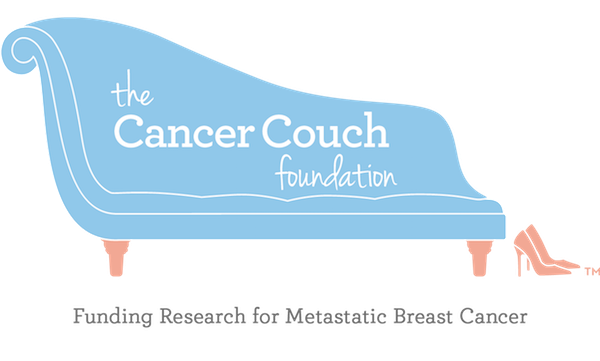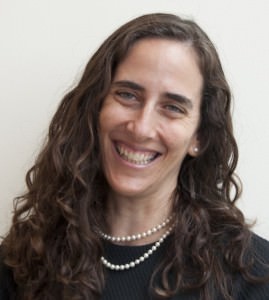Dr. Corrie Painter…on the Couch
The Cancer Couch could not be more pleased to spotlight Dr. Corrie Painter this week as both a “diligent doctor” and a “patient with a purpose.” Wow, is her purpose crystal clear! Corrie’s name was brought to my attention very early on in my quest to find outstanding people trying to make substantial changes in the metastatic breast cancer world. I am so grateful that our mutual pal, Beth Caldwell, introduced us. Not only is she a positive, interesting, kind, and very cool chica… she is whipsmart and determined to make some significant changes by engaging patients in the process of developing better treatments. Here is Corrie’s story:
She was diagnosed with primary breast angiosarcoma in May 2010 at age 36. Like most breast cancer patients, Corrie suffered through the indignities of a partial, then radical, mastectomy, and she lost her hair due to side effects of chemo. However, unlike traditional breast cancers, this is an extremely rare type of cancer that is diagnosed in only 300 people worldwide each year. It starts in the lining of the blood vessels and hits randomly with no pattern linked to gender, race, age, or health history. Anyone can get this disease at any time. Since it is so rare, there was very little known about it when Corrie was diagnosed, and no support or camaraderie in coping with this or knowing where to turn for treatment options.
Since almost nothing was known about this cancer in 2010, and every case is different, finding consistent information to build on for treatment was elusive. Trained and educated as a biomedical scientist, Corrie found it extremely challenging to enter into, what she calls, “patientville” with no data.
There is a very poor prognosis with this type of cancer when it metastasizes and initially she was told she would have just 6 months to live. She spent that time preparing herself and her family (including her kids, then ages 2 and 4) for her potentially extremely premature death. She knew there might not be much she could do in this time frame to impact her treatment, but she also knew she wanted to leave her mark in the time she had left, and that she did. Through the power and reach of social media, Corrie connected with a handful of other patients who turned out to be a fountain of knowledge and support about angiosarcoma. They were “a beacon of hope” for her at that devastating time. She quickly helped mobilized the combined efforts, knowledge and passion of this group all while she prepared for the worst.
But then…she kept not dying.
So… she kept living, and working to make her mark on this illness. Corrie and the other angiosarcoma patients she met through Facebook identified doctors who were specializing in this type of cancer. They began directing patients to them so that finally, a substantial number of cases could be looked at together to start generating consistent data as to the how, why, and what of this illness. She joined with her on-line friend, Lauren Ryan, in founding the Angiosarcoma Awareness Foundation http://www.cureasc.org/about-us/. Sadly, Lauren passed away in June 2014 and Corrie and her team are carrying on this amazing work. Now, 6 years later, there is finally some anecdotal evidence about this disease and an established on-line resource for patients. A world of difference from Corrie’s experience in 2010 thanks to what started as just a handful of patients connecting on-line through social media.
Since her diagnosis, Corrie completed her PhD and did a fellowship in cancer immunology focused on melanoma. As she didn’t have an opportunity to focus on the lesser known angiosarcoma, she felt this was most closely related and applicable. She had an opportunity to start her own lab, but turned it down for a position at the Broad Institute in the Metastatic Breast Cancer (MBC) Project where she felt there might be a bigger impact on patients, sooner. After seeing firsthand the dramatic impact she and her fellow-angiosarcoma patients had in effecting change and driving data through the power of social media and their collective efforts, she decided to pursue a career focused on patient advocacy and science. Corrie saw a chance to really make a change in clinical practice – making sure learning is happening in both directions – doctor to patient and patient to doctor.
Corrie’s current position with the Broad Institute is Associate Director of Operations and Scientific Outreach for the MBC project. The MBC project is a collective movement of patients and doctors focused on accelerating treatment for metastatic breast cancer. They are collecting tissue samples of individuals with Stage 4 for transformative genomic studies focused on unlocking the key to better treatments. Please visit www.mbcproject.org for more information or to become part of the movement!
Thank you Corrie for sharing your story with The Cancer Couch, for being the approachable, smart, compassionate person you are. Thank you for connecting me with Dr. Nikhil Wagle and his research on metastatic breast cancer, and for all the amazing work you are doing at the MBC project!
She was diagnosed with primary breast angiosarcoma in May 2010 at age 36. Like most breast cancer patients, Corrie suffered through the indignities of a partial, then radical, mastectomy, and she lost her hair due to side effects of chemo. However, unlike traditional breast cancers, this is an extremely rare type of cancer that is diagnosed in only 300 people worldwide each year. It starts in the lining of the blood vessels and hits randomly with no pattern linked to gender, race, age, or health history. Anyone can get this disease at any time. Since it is so rare, there was very little known about it when Corrie was diagnosed, and no support or camaraderie in coping with this or knowing where to turn for treatment options.
Since almost nothing was known about this cancer in 2010, and every case is different, finding consistent information to build on for treatment was elusive. Trained and educated as a biomedical scientist, Corrie found it extremely challenging to enter into, what she calls, “patientville” with no data.
There is a very poor prognosis with this type of cancer when it metastasizes and initially she was told she would have just 6 months to live. She spent that time preparing herself and her family (including her kids, then ages 2 and 4) for her potentially extremely premature death. She knew there might not be much she could do in this time frame to impact her treatment, but she also knew she wanted to leave her mark in the time she had left, and that she did. Through the power and reach of social media, Corrie connected with a handful of other patients who turned out to be a fountain of knowledge and support about angiosarcoma. They were “a beacon of hope” for her at that devastating time. She quickly helped mobilized the combined efforts, knowledge and passion of this group all while she prepared for the worst.
But then…she kept not dying.
So… she kept living, and working to make her mark on this illness. Corrie and the other angiosarcoma patients she met through Facebook identified doctors who were specializing in this type of cancer. They began directing patients to them so that finally, a substantial number of cases could be looked at together to start generating consistent data as to the how, why, and what of this illness. She joined with her on-line friend, Lauren Ryan, in founding the Angiosarcoma Awareness Foundation http://www.cureasc.org/about-us/. Sadly, Lauren passed away in June 2014 and Corrie and her team are carrying on this amazing work. Now, 6 years later, there is finally some anecdotal evidence about this disease and an established on-line resource for patients. A world of difference from Corrie’s experience in 2010 thanks to what started as just a handful of patients connecting on-line through social media.
Since her diagnosis, Corrie completed her PhD and did a fellowship in cancer immunology focused on melanoma. As she didn’t have an opportunity to focus on the lesser known angiosarcoma, she felt this was most closely related and applicable. She had an opportunity to start her own lab, but turned it down for a position at the Broad Institute in the Metastatic Breast Cancer (MBC) Project where she felt there might be a bigger impact on patients, sooner. After seeing firsthand the dramatic impact she and her fellow-angiosarcoma patients had in effecting change and driving data through the power of social media and their collective efforts, she decided to pursue a career focused on patient advocacy and science. Corrie saw a chance to really make a change in clinical practice – making sure learning is happening in both directions – doctor to patient and patient to doctor.
Corrie’s current position with the Broad Institute is Associate Director of Operations and Scientific Outreach for the MBC project. The MBC project is a collective movement of patients and doctors focused on accelerating treatment for metastatic breast cancer. They are collecting tissue samples of individuals with Stage 4 for transformative genomic studies focused on unlocking the key to better treatments. Please visit www.mbcproject.org for more information or to become part of the movement!
Thank you Corrie for sharing your story with The Cancer Couch, for being the approachable, smart, compassionate person you are. Thank you for connecting me with Dr. Nikhil Wagle and his research on metastatic breast cancer, and for all the amazing work you are doing at the MBC project!



